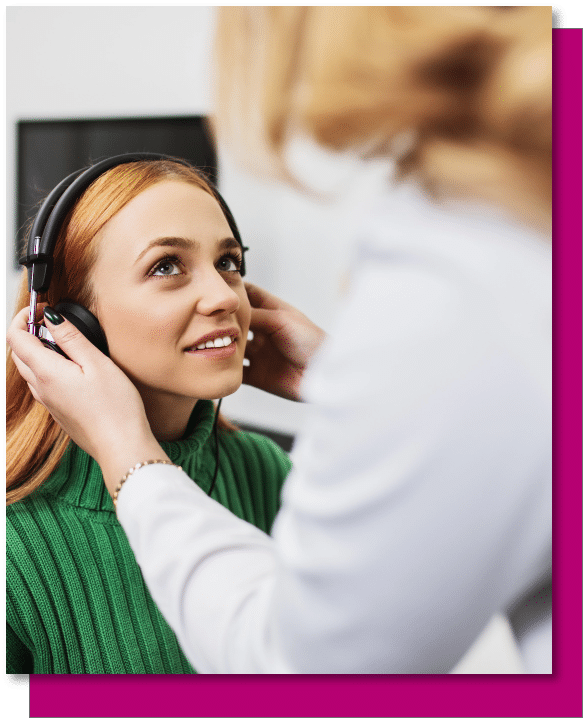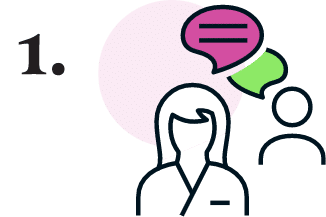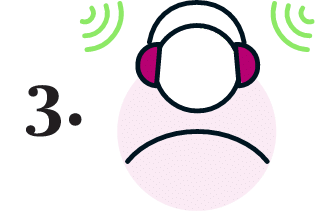Welcome to
Hearing Unlimited

Why Choose
Hearing Unlimited
Our goal is to provide comprehensive hearing care and educate the people of our communities on the importance of healthy hearing.
We have been helping the people of Pittsburgh hear better since 1949. We have five convenient office locations each with long hours to better accommodate each patient. If you can’t make it into one of our offices, we offer both house calls and virtual appointments. With our House Call Program, one of our specialists will come to your home, making hearing care easier and more accessible than ever!

Subscribe to our YouTube channel here
What to Expect
at Your First Appointment
When you visit our hearing center, you can expect your initial appointment to be separated into a few parts.

We always begin with a conversation to get to know you. We will ask you some questions about your hearing, health history, family history, and lifestyle.

Then we will perform an ear exam by using an otoscope to look inside your ears. We want to ensure your ears are clear of any earwax or ear infection before we move onto the hearing test.

The hearing test is quick and easy. We will have you sit in one of our sound booths with a pair of headphones on. The purpose is to assess how well you can hear different sounds at various frequencies.

After the hearing test we will go over your results which are recorded on an audiogram. We will answer any questions you may have and help you find a suitable management option if a hearing loss is present.
Check My Hearing Now!
Do you think you are suffering from hearing loss? Use our free online hearing screening tool to check your hearing in as little as five minutes!
Virtual Appointments
Can’t make it to the office? We are now able to see patients remotely through the CQ Partners Virtual Office! This tool makes it easy to meet with a Doctor of Audiology, screen your hearing, and discuss hearing aids online.
You don’t need any special equipment—just headphones and a device with a working camera and microphone. We will send you a link to your appointment and guide you every step of the way.
The Virtual Office is a safe, accurate, and convenient way to make your hearing a priority. Don’t put off better hearing any longer.

Preferred Provider
of the NFL Players Association

Our Patients Say it Best
Hearing Unlimited Testimonials
Hearing Healthcare
Articles

Hearing Aids Proven to Improve Brain Health
Hearing Unlimited can help you manage hearing loss and reduce your risk for dementia. Contact us today to schedule your appointment!

Stress Awareness Month: How Long-Term Stress Connects to Tinnitus
Learn how stress affects tinnitus. Discover actionable steps for relief. Schedule an appointment today to take your first step toward relief.

Hearing Loss Linked to Higher Alzheimer’s Risk – Brain Health Awareness
Addressing hearing loss is crucial for your brain health. Our team is proud to provide hearing healthcare services to help you lower your risk of Alzheimer’s.

Why Hearing Matters: Exploring Health Impacts on World Hearing Day
Discover why hearing matters on World Hearing Day – uncovering the link between hearing loss and overall health.
Get the Latest in
Hearing Healthcare
Interested in learning more about trending hearing healthcare topics? Fill out the form below to subscribe to our monthly newsletter and keep yourself updated with the latest hearing information.





